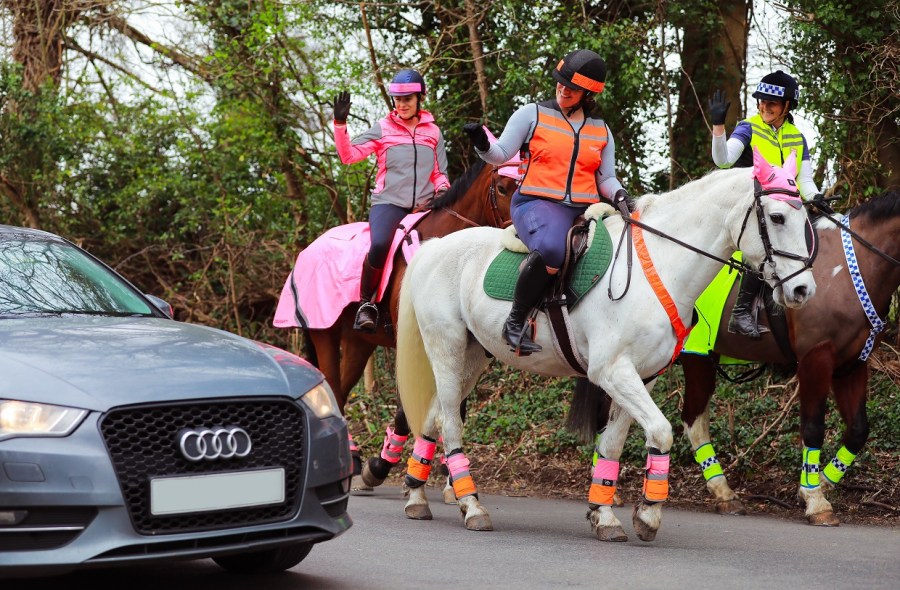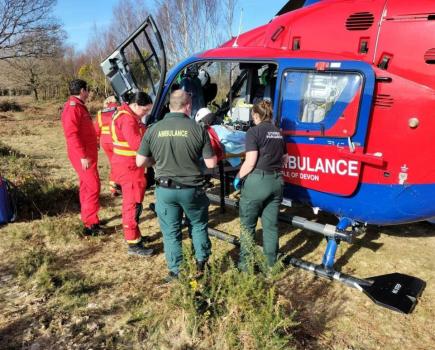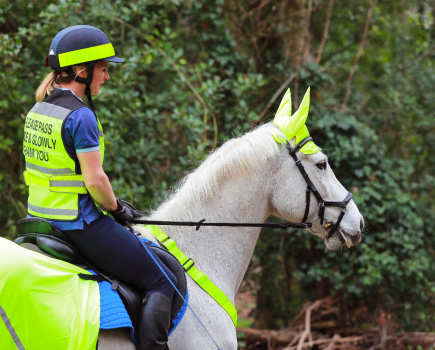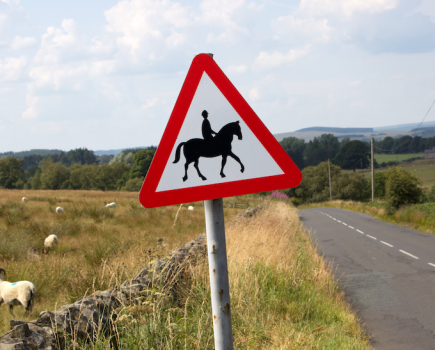Following the gradual easing of the lockdown restrictions, The British Horse Society (BHS) is issuing a safety warning to equestrians to be mindful of the steadily increasing traffic and cycle activity on both the roads and public rights of way.
The Government’s measures to delay the spread of coronavirus significantly reduced the number of vehicles on the roads, but there has been evidence of an increase in the number of people cycling, as well as vehicle speeds increasing on the roads.
The British Horse Society is stressing to all riders and carriage drivers the importance of taking extra care whilst exercising horses on the roads, when no other option is available.
Alan Hiscox, director of safety at The British Horse Society said: “With the Government’s slight lifting of the lockdown measures, the level of activity on our roads is increasing, as well as the speed of the traffic.
“Most riders may have to unfortunately ride on the roads at some point, whether that to reach a nearby bridleway or yard, and therefore the BHS is stressing the importance of being hyperaware of your surroundings to better protect your safety. If both riders and drivers share the roads responsibly then we can help to bring incident levels down.”
The BHS has issued a checklist of safety precautions that riders should try to adhere to as they return to riding on the roads:
- If your horse has been ‘roughed off’ or ‘off work’ during the lockdown, be sure to bring your horse back into work carefully and follow the BHS advice on how to do this
- If possible, lunge or walk your horse in hand before going out on the roads. Ask yourself, “Can I control my horse?”
- Make extra checks on your horse’s tack for safety
- Try and let someone know where you are going and when you expect to be back
- Do not ride out in poor visibility
- Maximise the likelihood that other road users will detect you. Wear conspicuous clothing (hi-vis), at least a ‘vest’, and hi-vis leg bands for your horse. Consider wearing more at this time i.e. a hi-vis hat, band, gloves, breastplate and tail guard. Consider wearing lights on your boots and on your arms. Accentuate the width of your horse.
- Consider the time of day when riding on the road. Although there is less traffic on the roads, there is still an element of ‘rush hour’ with people driving to work.
- Choose a quiet route if you can.
- Exercise your horse in company with another horse and rider (social distancing rules) or with someone walking alongside you, if possible.
- Be extra aware. Listen for vehicles, check behind you more often. Expect the unexpected at all times. Look out for anything unusual. Take as many precautions as you can.
- Constantly re-assess what is happening around you.
- Keep both hands on the reins at all times, except when signalling.
- Give clear and assertive signals to drivers.
- Acknowledge a driver’s careful driving by smiling or nodding, especially if you can’t take your hands off the reins to signal thank you.
- Have an ID tag on your saddle.
- Have ‘In case of emergency’ numbers entered on your phone.
- Do not use your mobile phone unless in an emergency, and do not listen to music with ear buds whilst riding.
- Read the BHS Ride Safe Guide and update yourself with the Highway Code guidance for horse riders.
- Concentrate on your horse all the time. They may give you signals that something is different.
- If you are involved in an incident, report it to the BHS via horseaccidents.org.uk
- Consider wearing a helmet-cam or body cam. Most police forces are accepting film of incidents.
Don’t miss the latest issue of Your Horse Magazine, jam-packed with training and veterinary advice, horse-care tips and the latest equestrian products, available now.









